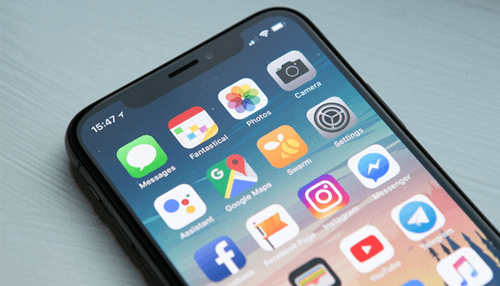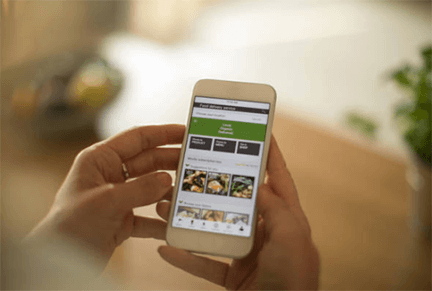Like many, you are likely to have interacted with several mobile apps on your smartphone today.
Mobile apps are hugely influential media that can have a far-reaching impact in spreading awareness about your brand. Introducing an app of your own will help you meet your target audience where they spend most of their time, as research has shown that smartphone users spend at least five hours a day on their mobile devices.
Still on the fence? While businesses in most industries can benefit from a mobile app, a few stand out specifically.
1. Automotive:
Car apps have evolved dramatically over the past few years. Besides helping your customers keep tabs on their cars’ mechanical health, your app can turn your smartphone into a key that opens and locks the car’s doors. There’s even a mobile app where consumers can buy a car directly, and it is delivered to them.
2. Tourism:
If you want to raise awareness about your hotel or resort, you can offer an app that provides potential visitors with information about the attractions surrounding your place. Your app can also suggest nearby restaurants or things to do. To increase brand loyalty, you can have a feature that accumulates points whenever customers spend a night.
3. Retail:
This is another industry taking advantage of apps to help cement customer loyalty. You can create loyalty accounts for customers that are updated automatically whenever purchases are made. Your app can also work with a customer relationship management software program in the background and give notifications whenever relevant items become discounted. Several retailers are already offering special discounts for app downloads and shopping experiences, enticing more sales.
4. E-commerce:
If your customers can only use a desktop or laptop computer to buy products from your online store, you’re in danger of losing business to your competitors. Your customers should be able to browse your merchandise through a mobile app and favorite items they like to return to later and complete purchases. E-commerce shopping is much more convenient for end-users via mobile apps.
5. Construction:
Apps can enable a closer collaboration among the different teams that work on a construction site. An architect can submit his plan through the app, saving him the trouble of delivering it physically. You can integrate the app with your inventory system to ensure construction materials are ordered in a timely manner. Or, use an app for marketing purposes to display past work.
6. Healthcare:
There are many ways mobile apps can enhance the experience of your customers. An app can facilitate communication between patients and caregivers, like viewing lab results or medical records—a critical component in the age of social distancing. Preventative healthcare information such as fitness routines and dietary tips can be made accessible on apps, along with timely notifications. An app like Jennyco would be beneficial for patients to monitor and decide on their own health.
7. Fashion:
Fashion businesses are doing much more with mobile apps today than merely listing their latest collection for sale. In order to create a more personalized experience, fashion apps are leveraging this technology to gather more information and personalize clothing recommendations. You can even have an available AI-enabled chat to field simple queries from would-be buyers, increasing your conversion chances.
8. Education:
Being able to access learning material online via mobile devices has brought quality education directly to students. Entire syllabi can be made available via an app, granting the ability to unlock lessons and assignments systematically as you progress through a course. Related courses can be recommended to learners as they work on their current ones, boosting sales without the need for additional marketing.
9. Entertainment:
Number crunchers confirm that 33 percent of apps installed on smartphones today are gaming apps. You probably also use a streaming app like Spotify to stream music at some point in your day. The entertainment sector represents a massive potential for customer engagement—the opportunities are as expansive as your imagination.
10. IT:
Tech is the one industry customers would expect to be well-represented in the mobile space. Your customers should be able to download software updates and other products through your app. They should be able to get all the support they need from the app, whether it be from articles and tutorials or live chat.
11. Finance:
The finance industry has been privy to the potential of mobile apps for quite some time now. Almost every major bank has an app through which you can access virtually all the services you once had to line up in a queue for in physical banks. Customers can monitor their accounts, pay bills, get loans, even open the account,s and complete transactions in the app. If you’re a bank without an app, you may want to reconsider.
12. Dining and Service:
Mobile apps are currently on trend in the dining hospitality industry, with almost every restaurant eager to occupy some real estate on their customers’ smartphones. With a service app, you can make it easier for diners to make reservations for select dates. Customers can even use these apps to scan a menu and order in advance or for takeout without using a third-party app with high fees.
The Mobile Takeover
Regardless of your business’s type, you can enhance your prospects with a mobile app. Your app could become the nerve center of your communications with your customers. When implemented well, an app can even become a primary means for lead generation.
If the task seems daunting to take on internally, reach out to New York-based mobile app designers and creators to get your digital revolution underway. Even if you’re not in NYC, the city is well-known for producing strong developers. The Silicone Valley area of California and Seattle, Washington, are also great places to consider.




